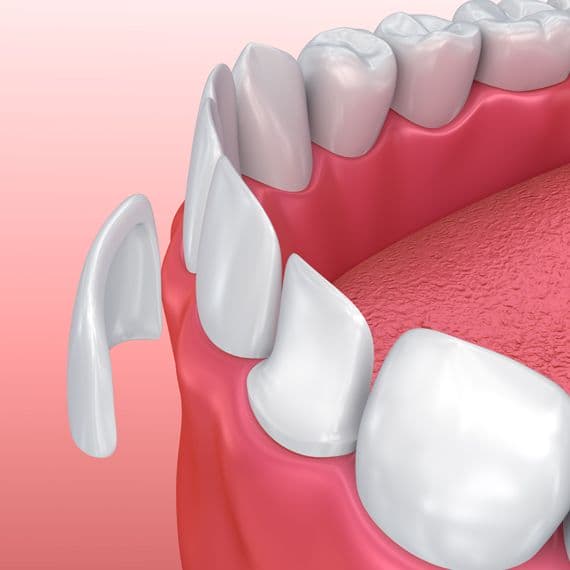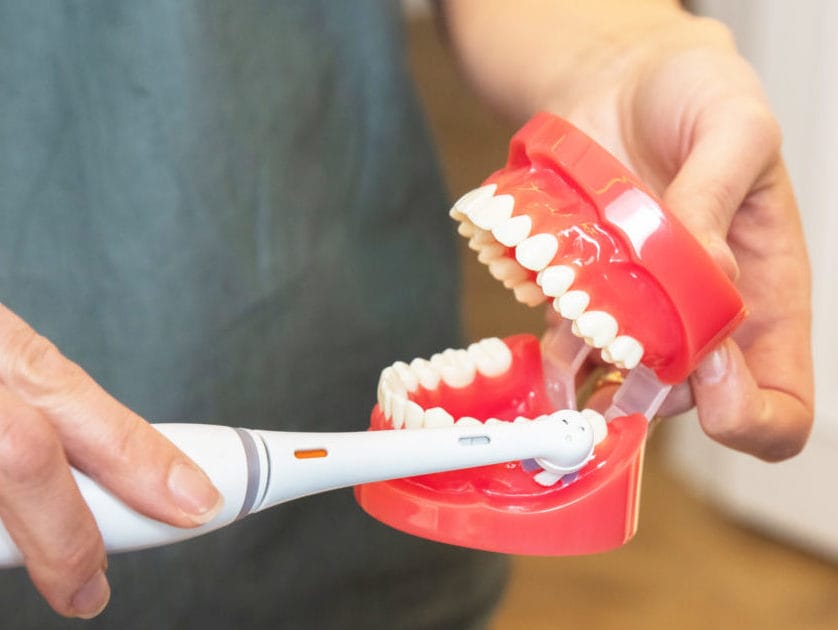Veneers in London
Porcelain Veneers are a fantastic cosmetic and restorative treatment at our clinic in London. They can spectacularly improve the appearance of your smile, whilst at the same time protect your teeth.

Treatment
1 – 6 hours

Price
From £1,700

Team Experience
50+ years

Recovery Time
24 hours

Google Rating
★★★★★ (4.9)
Examples of our work
Veneers offer a versatile solution for transforming the appearance of a smile, from addressing discoloration to refining shape and alignment. At Wimpole Street Dental Clinic, our veneers case studies showcase the artistry and precision we bring to each patient’s treatment, achieving stunning, natural-looking results. Each case reflects our commitment to creating beautiful, long-lasting smiles that enhance confidence and highlight individual beauty.

Veneers are masterfully crafted very thin porcelain surfaces that can be permanently bonded to the teeth, protecting them, changing their shape and improving their colour. When done properly, with good case selection, microscopic attention to detail and with the help of a brilliant ceramist, they cause no damage and look naturally incredible. Veneers also can last for decades, virtually unchanged. The materials commonly used by us are feldspathic porcelain and lithium disilicate.
Why porcelain veneers in London?
Porcelain veneers are a superb choice for anyone looking to enhance their smile without compromising the health of their natural teeth. These thin layers of porcelain are carefully crafted to cover the front surface of your teeth, providing a bright, uniform appearance. Our process is minimally invasive, preserving the integrity of your teeth while transforming your smile.
These veneers are ideal for individuals with teeth that are worn, chipped, heavily restored or discoloured. The beauty of porcelain veneers lies in their versatility and the minimal preparation required. For many patients, particularly those with straight, small, or gapped teeth, no drilling is necessary, making it a conservative treatment option.
The benefits of choosing porcelain veneers are significant. They offer a quick transformation, with just a few sessions needed to complete the procedure—without any pain. Porcelain veneers are not only an aesthetic improvement but also a boost to your confidence, providing a long-lasting and dramatic enhancement to your smile.
Porcelain veneers have advantages over composite veneers. While both types improve the appearance of your teeth, porcelain is more durable and resistant to staining than composite materials. Porcelain also tends to reflect light in a way that more closely mimics natural teeth, providing a more natural and appealing look. This makes porcelain veneers a superior choice for those looking for a solution that combines aesthetics with functionality and longevity.
What is the difference between crowns and veneers?
The dental crowns we produce are ceramic caps designed to replace a missing or extensively damaged tooth by covering it in its entirety. A veneer is a thin layer of ceramic material (shell-shaped) which is designed to cover the front of the tooth surface, resulting in an improved aesthetic appearance. It will also protect the tooth from further damage, and can even improve the function of the bite.
Do veneers stain?
Not permanently. Minor surface staining may occur with regular exposure to certain foods and drinks such as red wine and coffee but it is entirely and easily reversible – a visit to the hygienist or to your dentist will solve it immediately.
Who is suitable for veneers?
Teeth can become unsightly and with an aged appearance due to discoloured restorations, wear and chips. Some teeth simply have irregular shapes, contributing to gaps, or have become severely discoloured.
Porcelain veneers can efficiently cover these defects, restoring the appearance of a healthy young beautiful dentition without invasion. They also contributed to improved function and will protect weakened teeth. Overall, the ideal case for veneers is when teeth need a small increase in volume and/or height.
Experts in Veneers – meet the team
- Over 75 years of combined experience in dentistry among our specialists.
- More than 10,000 dental treatments successfully performed.
- Industry leaders in dentistry, with regular international teaching, lecturing, and publishing of research.
Our Expertise
At our clinic, we recognise the significant responsibility involved in any dental treatment, especially when it comes to enhancing your smile with veneers. We believe that every patient deserves unparalleled quality and safety in their dental care, without compromise.
Our team of dentists isn’t just highly experienced and trained in cosmetic dentistry; they also prioritise understanding and achieving your aesthetic goals. This level of dedication requires a unique blend of precision and artistic vision, ensuring that each set of veneers is crafted to perfection.
We understand that the key to exceptional veneers lies in meticulous diagnosis, careful step-by-step execution, and collaboration with top-tier dental laboratories. Anything less can lead to veneers that appear unnatural and may cause discomfort or gum inflammation.
At our clinic, our commitment is to deliver veneers that not only look spectacular but also blend seamlessly with your natural teeth, enhancing your smile while maintaining its authenticity. Let us help you achieve the beautiful, natural-looking smile you deserve.

Helen Li
Wimpole Street Dental has the highest most ethical standard of work, personable approach, clear and safe procedures, top notch excellence and reliability in treatment provided with utmost professionalism from crème de la crème world class specialists all under one roof.
What happens during the treatment of Veneers?
Considering porcelain veneers to enhance your smile? Here’s a straightforward guide to the process at Wimpole Street Dental Clinic:
Step 1: Initial Check-Up – Your dentist will conduct a thorough examination of your teeth, take photos, and document everything needed to assess your suitability for veneers. We’ll also check for any underlying dental issues. At this stage, impressions may be taken to create a wax model of your ideal smile, allowing you to preview the expected results with precision.
Step 2: Mock-Up Approval – Using a simple, reversible technique, the dentist will apply the wax model directly to your teeth. This mock-up serves as a precise visual of your new smile, giving you the opportunity to approve the look and feel of your veneers before moving forward.
Step 3: Teeth Preparation – This step involves minimal, if any, alteration to your tooth enamel, using high magnification and guides to ensure the process is gentle and respectful of tooth biology. Temporary veneers, resembling the final ones, will be crafted and placed at the end of this visit.
Step 4: Fitting the Veneers – About three weeks after your preparation visit, once the porcelain veneers have been expertly crafted by our technician, you’ll return for the fitting. The veneers will be precisely bonded to your teeth, ensuring they look and function perfectly.
Take your first step with Wimpole Street Dental Clinic
Discover the path to a brighter smile with Wimpole Street Dental Clinic! Our team of skilled professionals utilizes advanced technology to provide personalised dental care in a comfortable setting.












Updated content
Written by: Dr Raul Costa
Medically reviewed by: Prof Dr Christian Mehl
Updated content to include new patient story & frequently asked questions
Written by: Prof Dr Christian Mehl
Medically reviewed by: Dr Raul Costa
New page design
Written by: Prof Dr Christian Mehl
Medically reviewed by: Dr Raul Costa
Author biography added
Written by: Prof Dr Christian Mehl
Medically reviewed by: Dr Raul Costa
Original content created
Written by: Prof Dr Christian Mehl
Medically reviewed by: Dr Raul Costa
Wimpole St Dental Clinic has strict sourcing guidelines and relies on peer-reviewed studies, academic research institutions, and medical associations. We avoid using tertiary references. You can learn more about how we ensure our content is accurate and current by reading our editorial policy.
- Fahl N Jr,, Ritter AV. Composite veneers: The direct-indirect technique revisited. J Esthet Restor Dent. 2021 Jan;33(1):7-19. doi: 10.1111/jerd.12696. Epub 2020 Dec 18. PMID: 33336852.
- Gresnigt MMM, Sugii MM, Johanns KBFW, van der Made SAM. Comparison of conventional ceramic laminate veneers, partial laminate veneers and direct composite resin restorations in fracture strength after aging. J Mech Behav Biomed Mater. 2021 Feb;114:104172. doi: 10.1016/j.jmbbm.2020.104172. Epub 2020 Nov 4. PMID: 33172798.
- Farias-Neto A, de Medeiros FCD, Vilanova L, Simonetti Chaves M, Freire Batista de Araújo JJ. Tooth preparation for ceramic veneers: when less is more. Int J Esthet Dent. 2019;14(2):156-164. PMID: 31061996.
- Korkut B. Smile makeover with direct composite veneers: A two-year follow-up report. J Dent Res Dent Clin Dent Prospects. 2018 Spring;12(2):146-151. doi: 10.15171/joddd.2018.023. Epub 2018 Jun 20. PMID: 30087767; PMCID: PMC6076883.
















